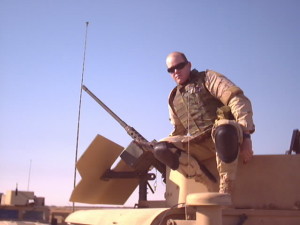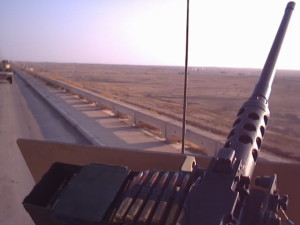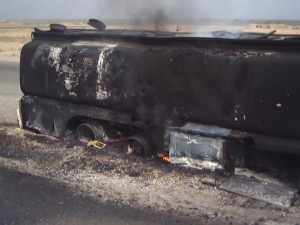A guest post by Nicole Lavigne.
Everyone knows a good story needs tension. We ask ourselves: what’s the problem, what’s the major conflict for the story? We’re not too likely to forget about that, and first readers will probably pick up on it if the main character never faces any trials, but that’s not the only tension we need to think about. There needs to be tension throughout the story, building slowly, sometimes in fits and starts too. It keeps a reader turning the pages. But perhaps one place where we might forget about tension, or fail to apply it, is in the opening. It needs tension too. Not big, THE END IS NIGH tension from the very first paragraph, but the first ripples stirring the water, the first creeping shadow while the sun still shines, making it clear that trouble lies ahead. I’m a slush reader for an online magazine, and this is one of my most common comments on stories: too slow in building tension.
Easier said than done, right? So of course, one of the pieces of feedback I got on my story Soil of Truth from my beta reader it was the lack of tension in the opening. Everyone got along too well. The main character, Osaeba, was the perfect apprentice and her mentor knew and appreciated it. One big happy family and absolutely no tension until the main problem was introduced, several hundred words later. Not good. The main problem of the story and its progression in the story was fine. But how to add tension in the opening when I am still introducing the characters and the world, before I can even get to the big problem? So I adjusted the opening. Osaeba was still a good apprentice, attentive and takes initiative, but I made her mentor more critical of her. It was a small change, and didn’t alter the plot, but it brought in some tension between the two characters. Now Osaeba is constantly trying to prove herself. The added bonus? That tension between them continued to build through the story and increased the tension in later scenes. Now it made even more sense when Osaeba’s mentor questions her concerns later on in the story.
Think about your own relationships. We rarely get along perfectly with everyone in our lives. Even people we like, and love, can have traits that get on our nerves or different opinions on important issues (religion or politics, anyone?). Misunderstandings happen all too easily. It’s not enough to end a relationship – a miscommunication or misunderstanding may be cleared easily enough with a conversation, once we have time to have it, or minor irritating traits are brushed aside – but they cause moments of tension. Fiction should show this as well.
The flip-side to this problem is starting a story in media rez, in the middle of the action. There’s lots going on, but if I don’t know enough about the character, their dangerous predicament won’t have me on the edge of my seat fearing for them. Tension works best when we care about the character and how events will affect them. We need to be invested in their hopes in dreams for the action to really mater. Starting in media rez can certainly work, but I find it works best if you give a sense of what’s at stake for the character: are they the innocent victim of a crazed murderer or fighting against the odds to save a loved one?
 Nicole Lavigne has a BA in English and Theatre from the University of Ottawa. She still lives in Ottawa but considers all of Canada her home after bouncing across the country as a military brat during her childhood. She is a professional storyteller, writer, Editorial Assistant for Beneath Ceaseless Skies magazine, and daylights as an administrative assistant for the government. Her story, Soil of Truth, will be appearing in Second Contacts by Bundoran Press in the fall of 2015.
Nicole Lavigne has a BA in English and Theatre from the University of Ottawa. She still lives in Ottawa but considers all of Canada her home after bouncing across the country as a military brat during her childhood. She is a professional storyteller, writer, Editorial Assistant for Beneath Ceaseless Skies magazine, and daylights as an administrative assistant for the government. Her story, Soil of Truth, will be appearing in Second Contacts by Bundoran Press in the fall of 2015.

 Of the many forms of conflict that we’re talking about this month, one of the more difficult kinds to write about is war. War is something you see on television. You read about it in novels. You talk about it with your friends. You complain about the money spent by the government, or the atrocities committed by those in the field. You wear your rose tinted goggles and scoff it from afar. But, unless you’re unlucky, it’s something that’s far away. I know, because I was there.
Of the many forms of conflict that we’re talking about this month, one of the more difficult kinds to write about is war. War is something you see on television. You read about it in novels. You talk about it with your friends. You complain about the money spent by the government, or the atrocities committed by those in the field. You wear your rose tinted goggles and scoff it from afar. But, unless you’re unlucky, it’s something that’s far away. I know, because I was there. The people I served with definitely come from all walks of life. While I call getting called upon to serve in a war zone as unlucky, some didn’t feel that way. I was supposed to be deployed three times, but I had someone offer to take my spot twice. The pay is good and the tax free benefits are especially enticing. Especially when you’re re-enlisting and have a bonus coming your way. You also have those out there that do it for the thrill. Some do it for the glory. And some honestly see it as the best way to help those in need. But one thing is true among all of us: the camaraderie. I’ve made strong bonds with people who I still call friends to this day. The soldiers you work with become your family. You rely on them and will trust them with your lives. If they can’t trust you, you’ll end up with the shitty jobs where they can just put you out of mind while they get the job done.
The people I served with definitely come from all walks of life. While I call getting called upon to serve in a war zone as unlucky, some didn’t feel that way. I was supposed to be deployed three times, but I had someone offer to take my spot twice. The pay is good and the tax free benefits are especially enticing. Especially when you’re re-enlisting and have a bonus coming your way. You also have those out there that do it for the thrill. Some do it for the glory. And some honestly see it as the best way to help those in need. But one thing is true among all of us: the camaraderie. I’ve made strong bonds with people who I still call friends to this day. The soldiers you work with become your family. You rely on them and will trust them with your lives. If they can’t trust you, you’ll end up with the shitty jobs where they can just put you out of mind while they get the job done. Our missions involved leaving the relative safety of the base. We trained for months before even going overseas on how to operate outside the wire. Everything was drilled into us since even the small mistakes can cost you your life. Everywhere were the reminders of the horrors we faced. Roads were marred with pock marks of past IEDs. Every object was watched and avoided. Vehicles burned as we drove past from other convoys. At each checkpoint you would hear the stories. The convoy just in front or behind you was hit. Medivac was called for someone but get some rest because we’re moving out soon. And despite the questions and fears, you go and try to sleep since you might have another 10 hour ride ahead of you.
Our missions involved leaving the relative safety of the base. We trained for months before even going overseas on how to operate outside the wire. Everything was drilled into us since even the small mistakes can cost you your life. Everywhere were the reminders of the horrors we faced. Roads were marred with pock marks of past IEDs. Every object was watched and avoided. Vehicles burned as we drove past from other convoys. At each checkpoint you would hear the stories. The convoy just in front or behind you was hit. Medivac was called for someone but get some rest because we’re moving out soon. And despite the questions and fears, you go and try to sleep since you might have another 10 hour ride ahead of you.
